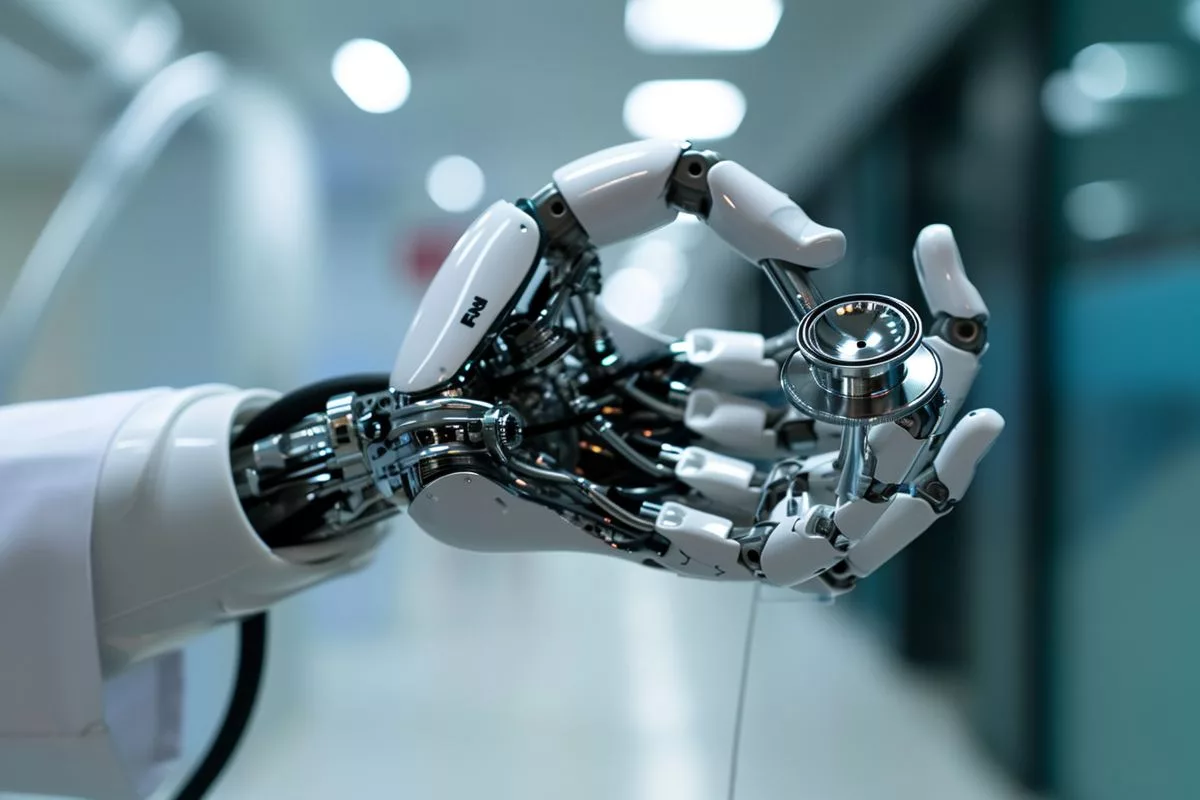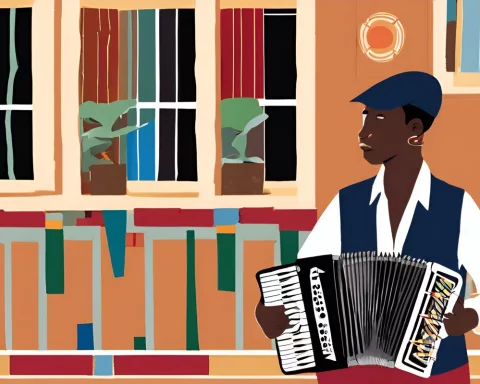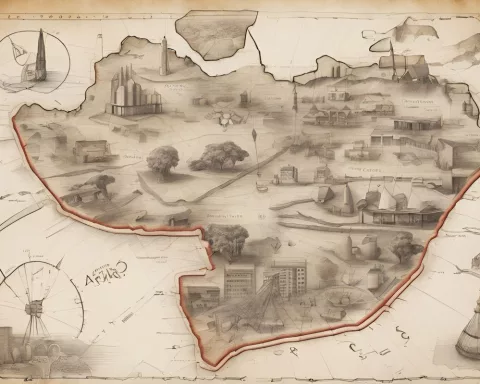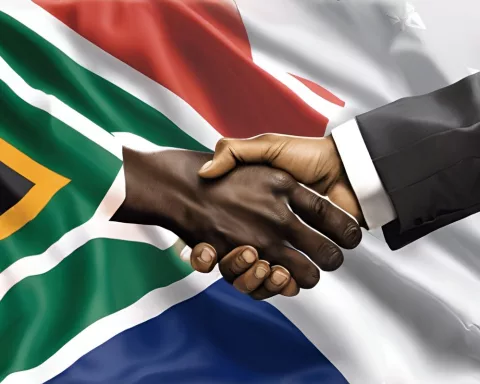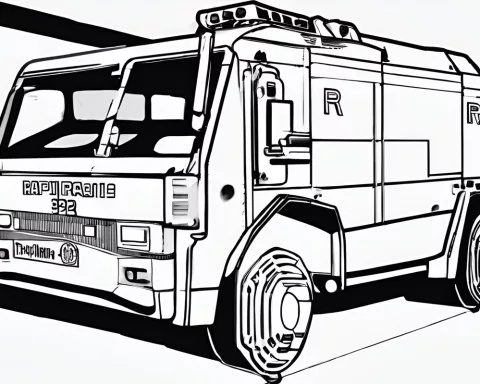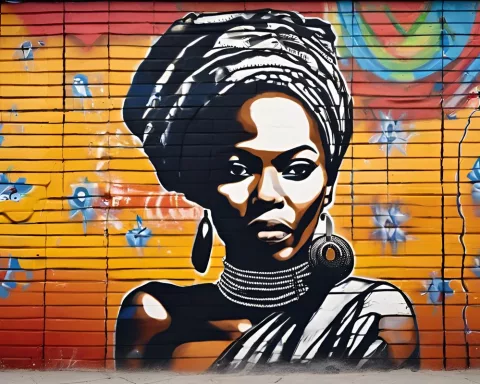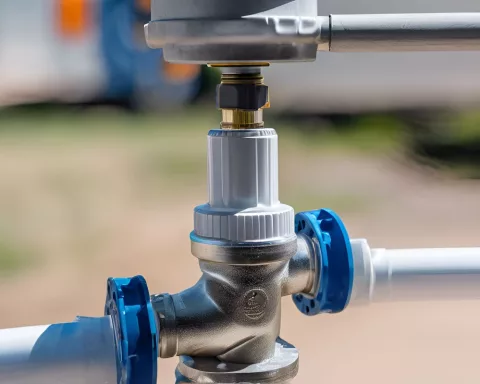Georgie, a state-of-the-art robot, has been introduced to the ICU of George Hospital, South Africa, as part of the TeleICU project. This technology improves decision-making and knowledge sharing among medical professionals, breaking down barriers of physical presence and making medical services more accessible and equitable. This innovative venture into telemedicine is anticipated to not only increase the accessibility of healthcare services but also make them more equitable, setting the stage for a new era of healthcare delivery in South Africa.
What is Georgie and how does it enhance medical services?
Georgie is a state-of-the-art robot introduced into the ICU of George Hospital, South Africa, as part of the TeleICU project. It enables real-time access to critical care expertise, thereby improving decision-making and knowledge sharing among medical professionals. This advanced piece of technology breaks the barriers of physical presence, making medical services more accessible and equitable.
On December 18, Western Cape Health and Wellness MEC Dr Nomafrench Mbombo took a significant step towards futuristic healthcare by introducing Georgie, a state-of-the-art robot, into the Intensive Care Unit (ICU) of George Hospital. This advanced piece of technology enhances medical services, enabling specialists at the Groote Schuur Hospital to communicate with doctors and patients at George Hospital in real-time. This revolutionary technology breaks the barriers of physical presence.
Significance of the TeleICU Project
Georgie is part of the innovative TeleICU project, which showcases the vast potential of digital health technology in making services more accessible and equitable. The objective behind this initiative is simple yet groundbreaking: to enhance the efficacy of resource allocation without undermining the quality of healthcare delivered.
George Regional Hospital, which is the sole facility equipped with an ICU in its region, serves a large population. In the past, specialist consultations for critically ill patients required either patient transfer to Cape Town or specialists’ travel to George, both of which were expensive in terms of finances and professional time.
Georgie: A Leap towards Futuristic Healthcare
Georgie, a twin robotic device, is specifically designed to resolve this issue. It enables real-time access to critical care expertise, thereby improving decision-making and knowledge sharing among medical professionals. Above all, it is linked to enhanced patient outcomes, representing a significant progress towards patient-centric, technology-driven healthcare.
The integration of this device into the existing healthcare infrastructure is both smooth and cost-effective. It demands no subscriptions or further IT support. As a result, specialists at Groote Schuur can regularly provide critical care services at George Regional via Georgie, thereby saving valuable resources for other uses.
A Shift towards Digital Health Technology
Dr Ivan Joubert, head of the Critical Care Medicine division at Groote Schuur Hospital, expresses optimism about the transformative potential of telemedicine. It builds team relationships across facilities by humanizing the previously anonymous voices of the critical care team. Their project distinguishes itself by shifting from the traditional healthcare provider-to-patient approach. Instead, they aim for a peer-to-peer intervention, which they believe will foster broader engagement and collaboration.
According to Dr Mbombo, it is crucial to enhance healthcare quality while reducing costs, given the current financial constraints. Georgie, despite its initial focus on critical care services, holds immense potential for expansion into other medical disciplines. This innovative venture into telemedicine is anticipated to not only increase the accessibility of healthcare services but also make them more equitable.
The Future of Healthcare Revolution
The arrival of Georgie marks a brave move towards the adoption of digital health technology in South Africa, possibly setting the stage for a new era of healthcare delivery. This pilot project signals the start of a healthcare revolution that is sure to capture the world’s attention.
Innovative projects like Georgie represent more than just technological leaps; they are strides towards a more equitable healthcare future. By utilizing technology, we can ensure that everyone, regardless of their geographical location, has access to the best possible care. This is the power of digital health technology, and it’s only the beginning of an exciting journey towards a more equitable healthcare landscape.
What is Georgie?
Georgie is a state-of-the-art robot introduced into the ICU of George Hospital, South Africa, as part of the TeleICU project.
How does Georgie enhance medical services?
Georgie enables real-time access to critical care expertise, thereby improving decision-making and knowledge sharing among medical professionals. This advanced piece of technology breaks the barriers of physical presence, making medical services more accessible and equitable.
What is the TeleICU project?
The TeleICU project showcases the vast potential of digital health technology in making services more accessible and equitable. It aims to enhance the efficacy of resource allocation without undermining the quality of healthcare delivered.
How does Georgie represent a shift towards digital health technology?
Georgie represents a significant shift towards the adoption of digital health technology in South Africa, possibly setting the stage for a new era of healthcare delivery. This pilot project signals the start of a healthcare revolution that is sure to capture the world’s attention.
How does Georgie foster collaboration and engagement among medical professionals?
Georgie builds team relationships across facilities by humanizing the previously anonymous voices of the critical care team. Their project distinguishes itself by shifting from the traditional healthcare provider-to-patient approach. Instead, they aim for a peer-to-peer intervention, which they believe will foster broader engagement and collaboration.
What is the future of healthcare revolution in South Africa?
Innovative projects like Georgie represent strides towards a more equitable healthcare future. By utilizing technology, we can ensure that everyone, regardless of their geographical location, has access to the best possible care. This is the power of digital health technology, and it’s only the beginning of an exciting journey towards a more equitable healthcare landscape.

